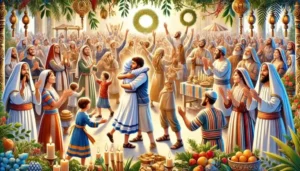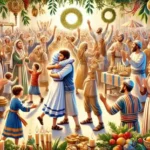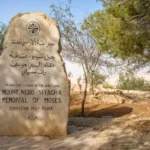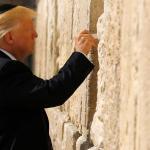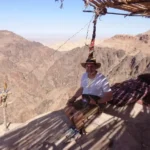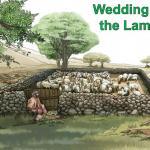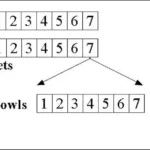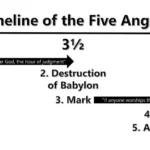Last Updated on December 14, 2024 by Steve
Genealogies
As a Baptist pastor in the last day’s church, commitment seems to be in short supply. Or people may like the idea but it seems to be so hard to find it practically outworked. Well, I have another Bible subject that doesn’t particularly seem to set the average western Christian on fire. And that is “genealogies”. You know the drill. It’s those long lists of names of who begat whom in the Bible in Genesis and also Matthew and Luke’s gospel too. It’s these supposedly ‘boring’ bits of information in the Bible that we seem to have no time for. These days we are all into the exciting things like praise and worship and seeing as many come to Christ as quickly as possible.
Chronological teaching through the Bible
For those who know me well as a pastor and a former Bible Teacher in a cross-cultural context in PNG, they know that I try to be very careful in bringing out the meaning of every verse in a passage. This conviction showed itself as I took my first church as a pastor in Australia through the whole book of Matthew during my first 3 ½ years every Sunday.1 That culminated in 14 young people being baptised in the following weeks. But that was a conviction that had begun long before on the field of PNG as I carefully taught chronologically through the Bible and also translated 7956 verses in the New Testament and also a first draft in the book of Genesis. I guess Bible translation work has made me realise that we need to be extremely careful in our treatment of the Word of God. If we are willing then there are absolute treasures in the Bible but they need to be dug up and examined. Too many of us these days are careless and flippant with the words of God dismissing what we don’t like and skipping over the seemingly trivial like the genealogies.
Around the Bible translator’s table
What really drove this home for me was when sitting at the large table with my Asengseng translation helpers, translation consultants, and myself as pictured above at the mission base in Hoskins, PNG. Luke 3:23–38 was being read out, tested, and checked back for accuracy. This is always a nervous time because you never really know if what you have translated has really communicated and you are always anxiously awaiting the response from your translation helper to see if he has understood it. But I didn’t expect to hear what I was about to hear after reading this particular passage of Scripture. Being a “boring” piece, being just the genealogies, I didn’t expect too much trouble except maybe just the pronunciation of the names. Not much to comprehend just that so and so was the son of so and so etc. etc. Of course, verse 23 starts with Jesus being the son of Joseph and you continue passing through the “son of David”, “the son of Abraham”, “the son of Methuselah” and so forth. The last couple and the crescendo builds with “the son of Enosh”, “the son of Seth”, “the son of Adam”, and finally “the son of God”.
Eureka moment for the tribal believers
After the last genealogy was read out to the group there was a loud and surprising ‘whoop’ in the group around the big table because they were so excited at what they had just heard. They could not believe that you could trace Jesus’ genealogy all the way back to God the Father. That was all the proof that they needed. Maybe boring to you and me but not to them. And you might ask why? Well, the answer is rather obvious upon reflection. In our western culture, we would struggle to come up with a dozen different kinship terms like mother, father, brother, sister, and so forth. But upon immersion into the Asengseng culture one very quickly becomes aware that kinship is definitely very important. With an estimated over 400 different kinship terms, it is almost impossible to get your head around it. I remember trying to count them one time. One day when trying to get language exposure I remember once remarking to an elderly woman named Mutli in the village how complicated and hard it was to remember what to call people. She advised me not to worry that I would get it. I did kind of get it but it is really hard to learn it when you are not using the terms on a constant basis. The reason being is that you are not really related to anyone there. I am the outsider. I was just the general ‘married brother’ to everyone. Anyway, kinship and genealogies were so important to them because it determines how one behaves in society. When I know what to call you and how I am related to you then I know how I should act in front of you what I can eat and drink in front of you and what I can say in front of you.
Proven—Jesus is the Son of God!
A reading of this seemingly insignificant passage gave such joy to these new believers because they could definitely say and prove to themselves that Jesus was actually the Son of God. No further proof is needed! As Gentile western Christians we have a Greek mindset focused on knowledge and intellectualism. The tribal mindset is arguably more like the Hebrew mindset, being focused on right conduct rather than right-thinking, having the right connections rather than having the right philosophical answers to every problem.
That instinctive reaction was a real eye-opener to me showing me that the Bible is essentially for all cultures and that every word is in there for a reason. Maybe we can accept all the proof that we need or should need is that genealogically Jesus is the very Son of God. End of story. And that should be enough to excite anyone about genealogies!
- I.e. Minden Baptist Church where I was pastor from 2010–2020 [↩]




